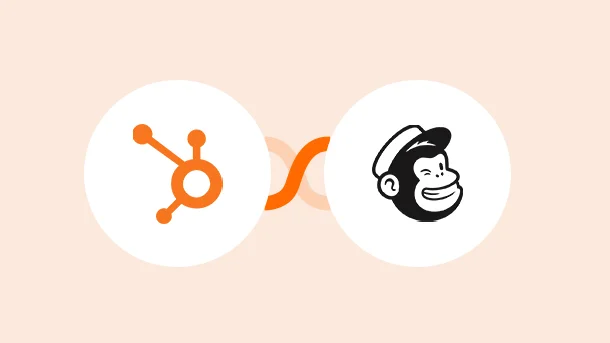
The main difference between HubSpot and Mailchimp is that HubSpot is an all-in-one marketing platform while Mailchimp is primarily marketing automation and an email marketing tool.
HubSpot offers a suite of tools to help with your inbound marketing like website management, blogging, email marketing, automation, analytics, etc. It is thus an all-inclusive digital marketing solution that helps grow your business.
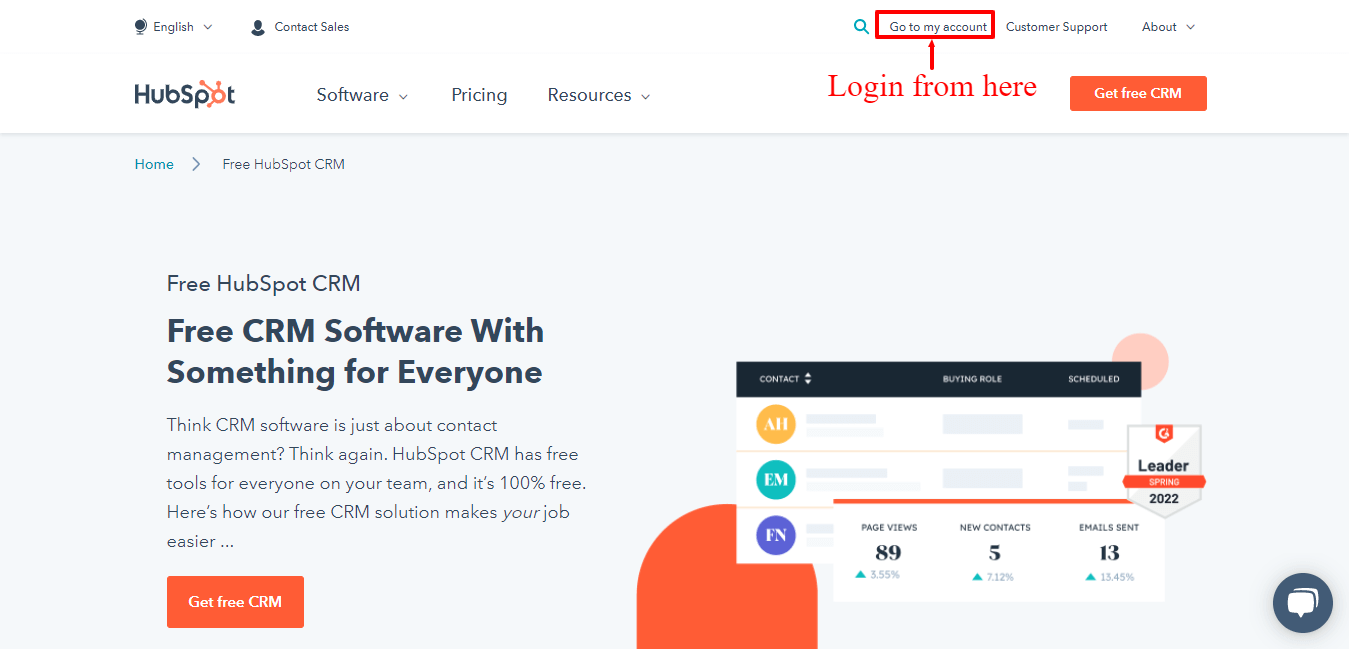
On the contrary, Mailchimp is an email marketing tool that also provides some basic automation features. It lacks the comprehensive nature of HubSpot and is more suited for businesses that are just starting with digital marketing.
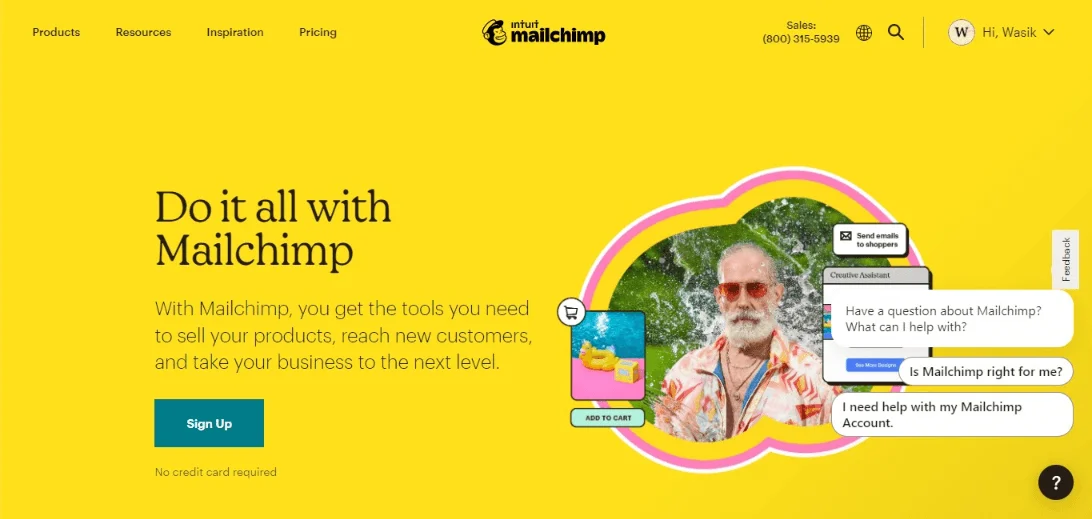
In this article, we will do a detailed comparison of HubSpot vs Mailchimp to help you decide which is the best tool for your business.

Integrate HubSpot With 750+ Apps In 1 Click
No Learning Curve. Built For Non-techies.
| Features | ||
|---|---|---|
| Concept | An inbound marketing tool that helps you identify leads, nurture them, set up sales funnel, and collect analytical data to track the performance of your campaigns | Popular email marketing solution that allows creating a website or launching an Online Store, Build Landing Pages, Customizing and Creating Digital Ads, and getting comprehensive analytics to track campaign performance. |
| Application | All-in-one platform that helps with inbound marketing, sales, and customer service | Mostly popular for email marketing but also provides automation, landing pages, digital ads, eCommerce integrations, reporting and analytics, and more |
| Reports | At-a-glance dashboard | Multiple personalized dashboards for different purposes |
| Social CRM | ✓ | ✓ |
| Drag and Drop Email editor | ✓ | ✓ |
| Landing Page Builder | ✓ | ✘ |
| Tracking codes | ✓ | ✘ |
| Progressive Profiling | ✓ | |
| Mobile App | Available on Android and ioS | Available on Android and ioS |
| Pricing | Ranges between $23 to $5000 | Ranges between $9 to $299 |
| Freemium model | ✓ | ✓ |
Now that we have looked at the main difference between HubSpot and Mailchimp, let’s do a detailed feature-wise comparison of the two tools.
HubSpot provides users with a powerful drag-and-drop website builder that can be used to create beautiful websites without any technical knowledge. It also offers a wide range of templates and themes that can be used to create a professional-looking website. However, you need a paid subscription to use the tool. However, it provides a landing page builder in its free version.
Mailchimp also provides users with a drag-and-drop website builder that can be used to create websites, sell your products, and much more. Besides, you can publish your website and unlimited landing pages at no cost.
🏆 Winner: Mailchimp
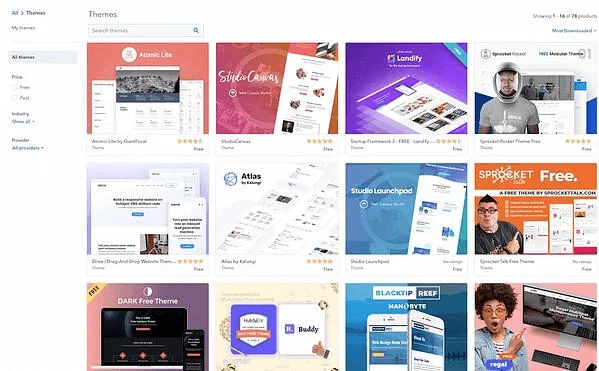
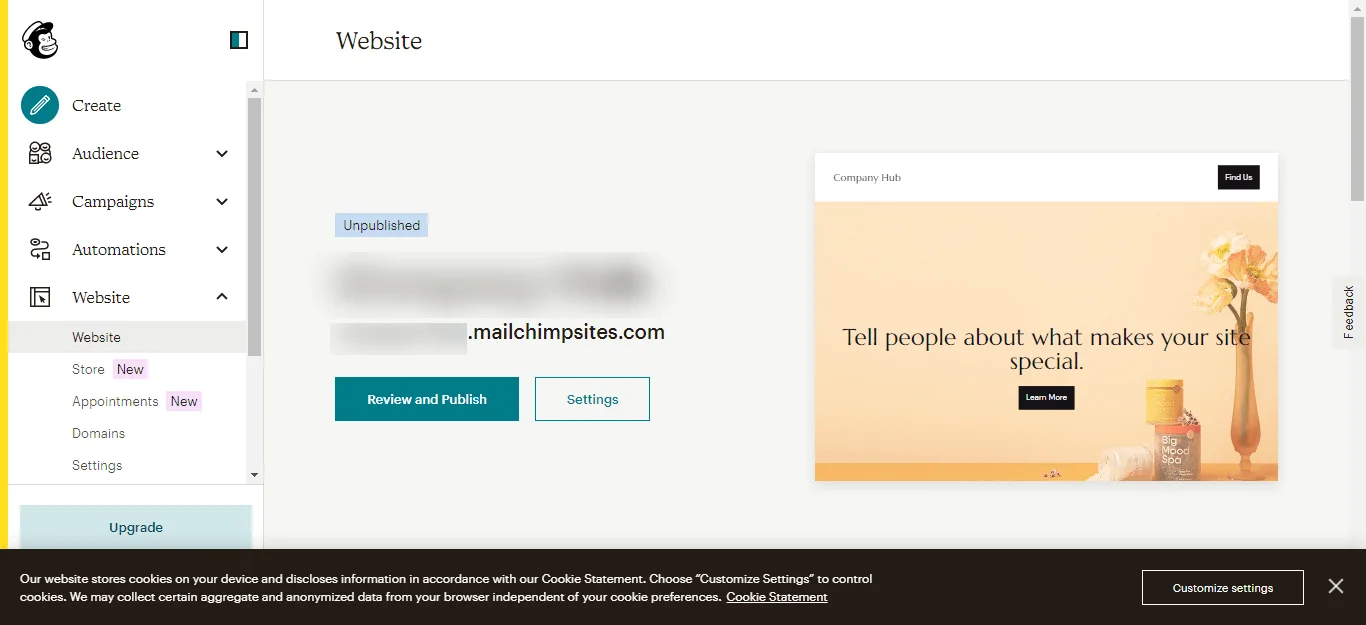
HubSpot offers a suite of tools to help you with your website management including CMS, blogging, SEO, and social media.
Mailchimp also provides some features for website management like customizable templates, social media integration, and landing pages. However, it does not have as many features as HubSpot when it comes to website management.
🏆 Winner: HubSpot
HubSpot‘s landing page builder is quite powerful and easy to use. It comes with a wide range of templates that can be used to create beautiful and effective landing pages. You can also use the A/B testing tool to test different versions of your landing pages and see which one performs better.
Mailchimp‘s landing page builder is also quite easy to use and comes with a wide range of templates. However, it does not have an A/B testing tool.
🏆 Winner: HubSpot
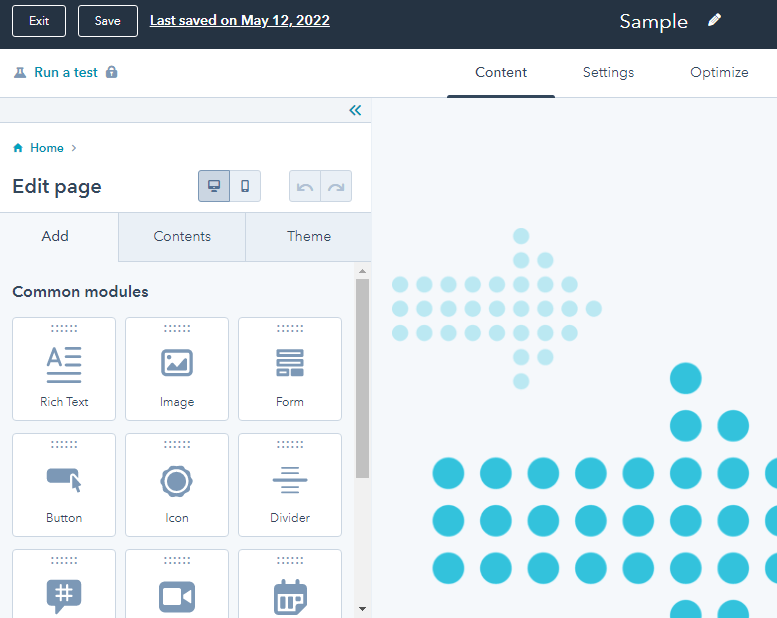
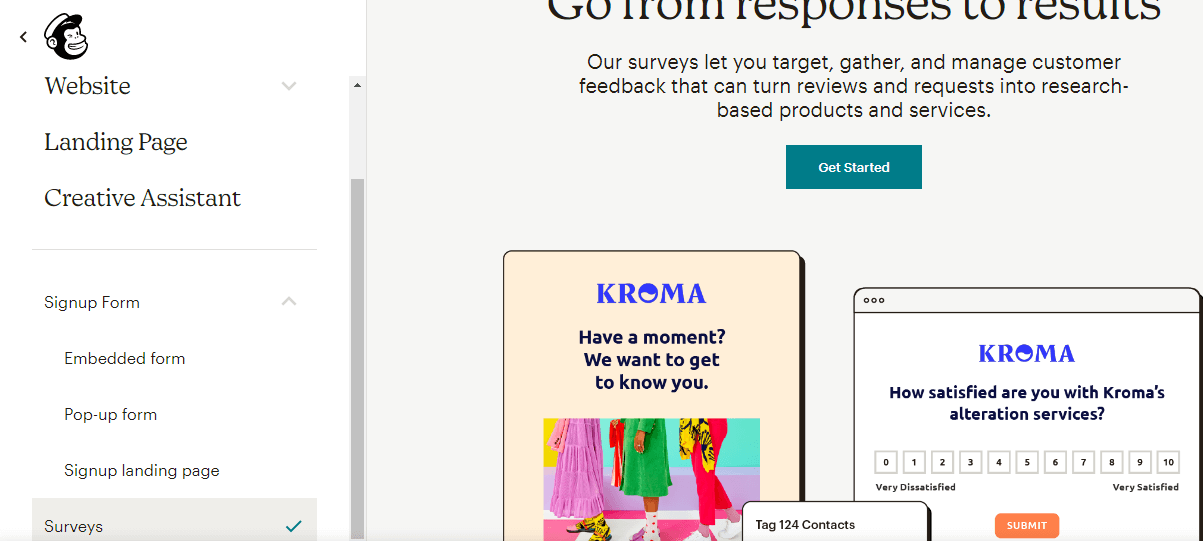
Both the apps provide powerful Email marketing tools with a wide range of features like :
🏆 Winner: Tie

Integrate Mailchimp With 750+ Apps In 1 Click
No Learning Curve. Built For Non-techies.
HubSpot‘s contact management tool lets you manage your contacts in one place. You can also segment your contacts based on their behavior and preferences. Besides, you also receive detailed information on how your contacts interact with your website, how many emails they open, the outcomes of a sales call, and the number of tickets they’ve opened with your support staff.
Mailchimp‘s contact management tool also manages your contacts in one place, but it does not allow you to segment your contacts based on their behavior and preferences.
🏆 Winner: HubSpot
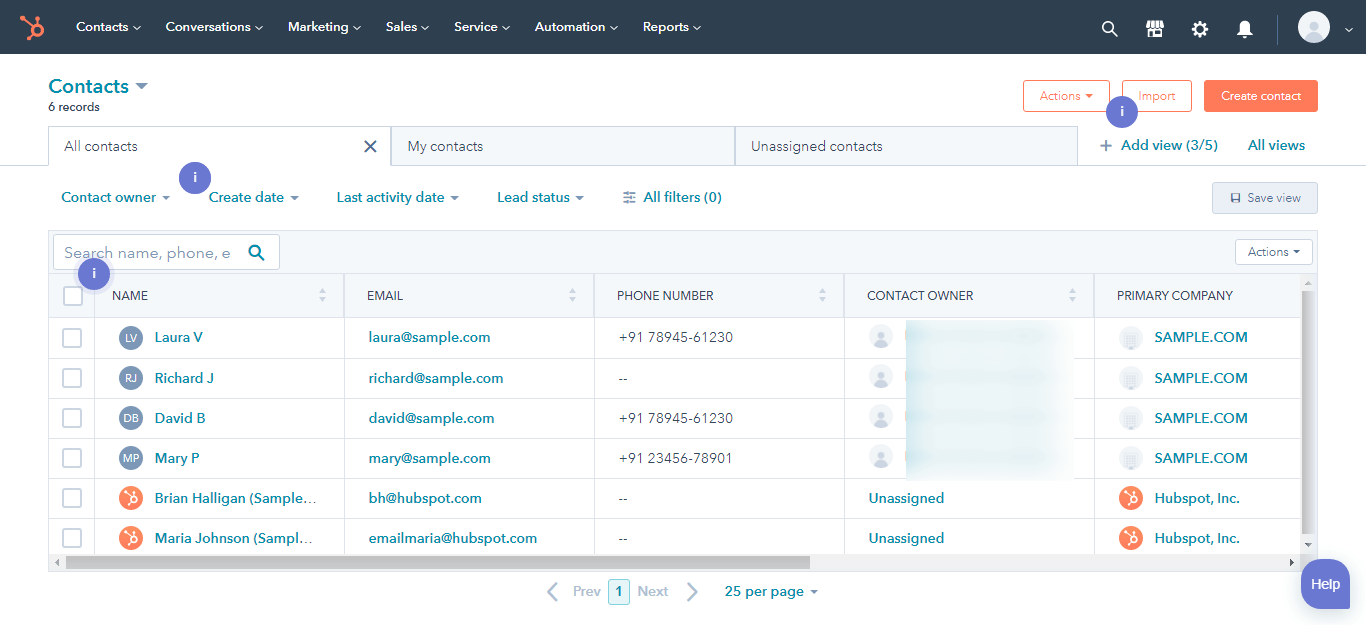
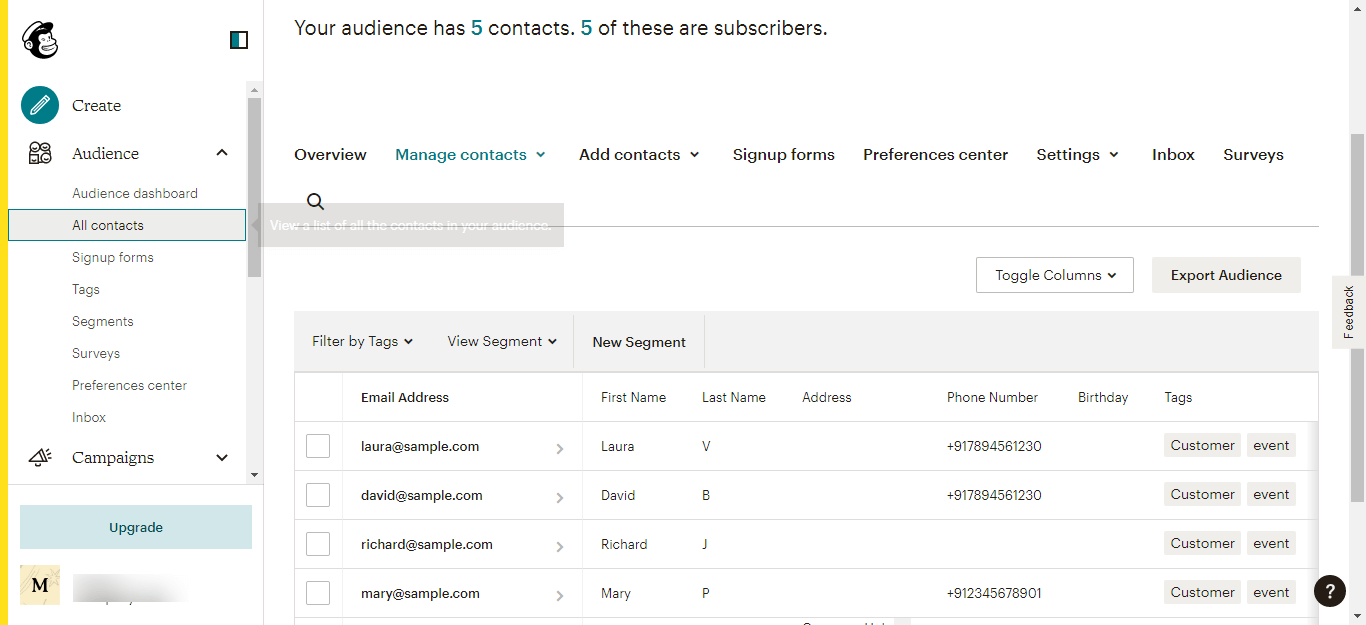
HubSpot‘s marketing automation tool automates your email campaigns, social media campaigns, and much more. You can also use the tool to segment your contacts and track the performance of your campaigns.
Mailchimp‘s marketing automation tool primarily focuses on emails. You can trigger emails based on user actions like subscribing to a list, opening an email, clicking a link, etc. You can also use the tool to segment your contacts and track the performance of your campaigns. The customer journey builder helps you map customer journeys for targeting emails but still falls short of Hubspot’s marketing automation capabilities.
🏆 Winner: HubSpot
HubSpot‘s analytics and reporting tool is quite powerful in tracking the performance of your marketing campaigns. It goes in-depth to give you a granular look at how each campaign is performing. You can also create custom reports and dashboards to track your progress. However all this is provided to premium users only.
Mailchimp‘s free reporting and analytics tool also tracks the performance of your marketing campaigns. However, it gives you basic analytics to make a decision and not the granular details.
🏆 Winner: Mailchimp
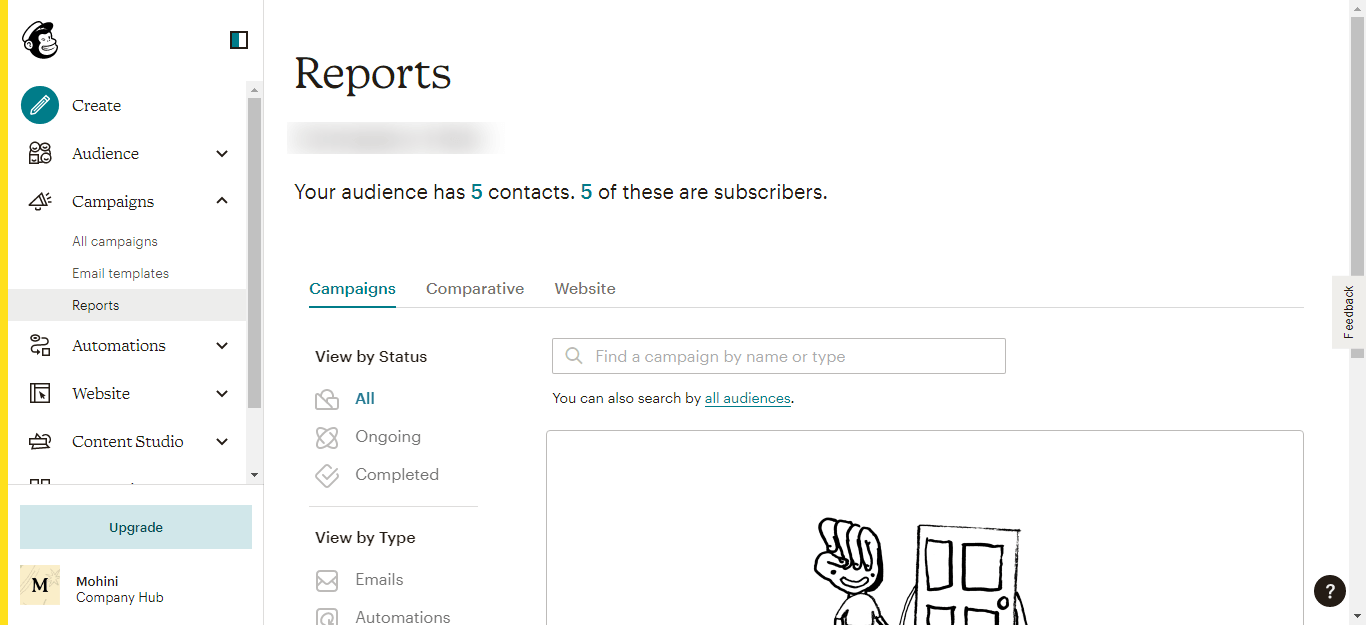
HubSpot
Community,
Phone,
Email, and
Live chat
Mailchimp
Email,
Live chat
Comprehensive guides and tutorials for self-help
🏆 Winner: Mailchimp
Now that you know the feature wise comparison, let’s see how they differ in pricing.
HubSpot provides a free package to start with, that includes the basic tools (as shown below)
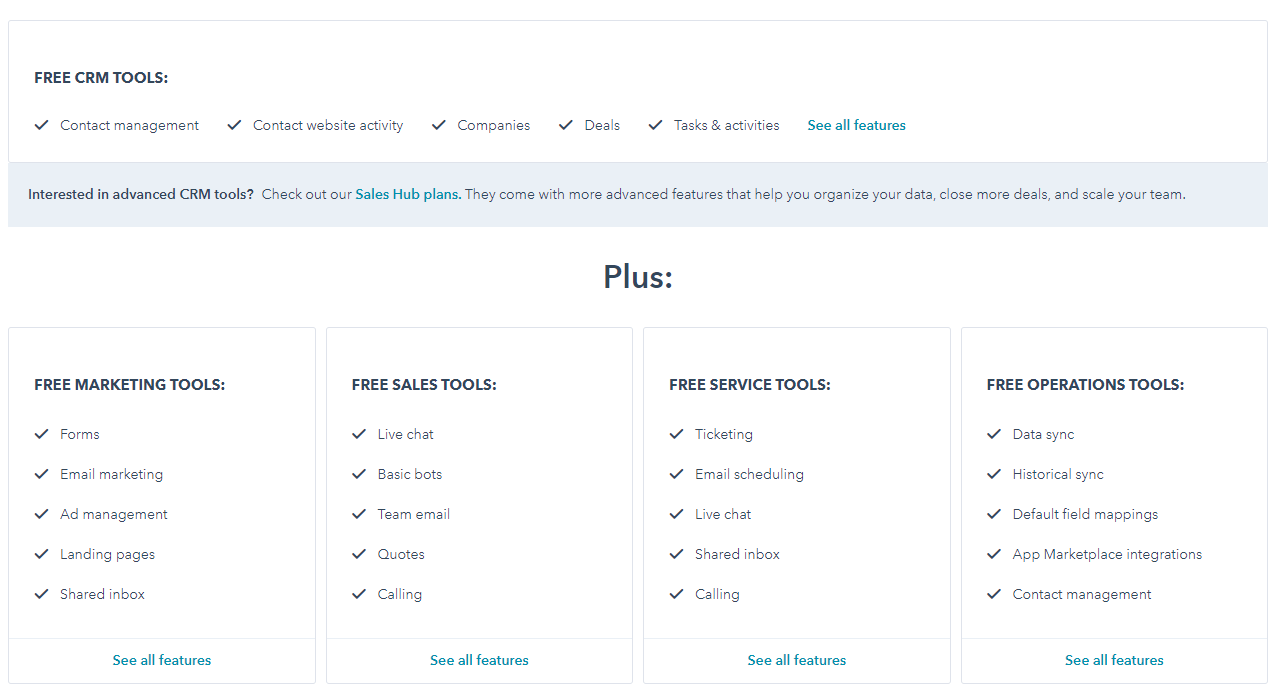
Besides the free tools, it offers 5 products to choose from :
It provides marketing tools that help you capture leads and turn them into customers. The plans vary depending on the number of marketing contacts provided and the tools included (as shown below)
Monthly pricing plan:
Annual pricing plan:
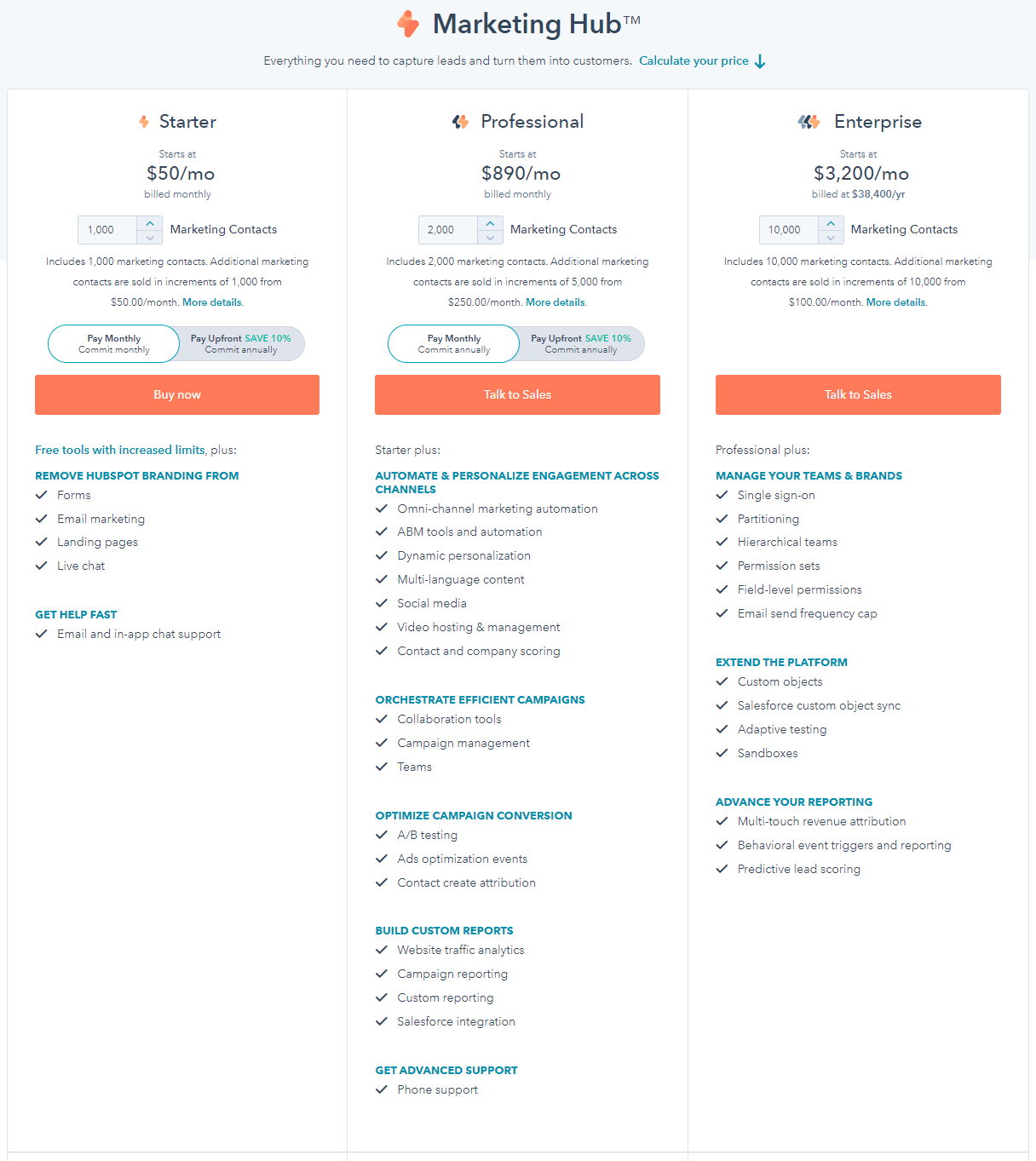
It’s the CRM that helps you organize your data and close deals faster. The price for this Hub varies depending on the number of paid users.
Monthly pricing plan:
Annual pricing plan:
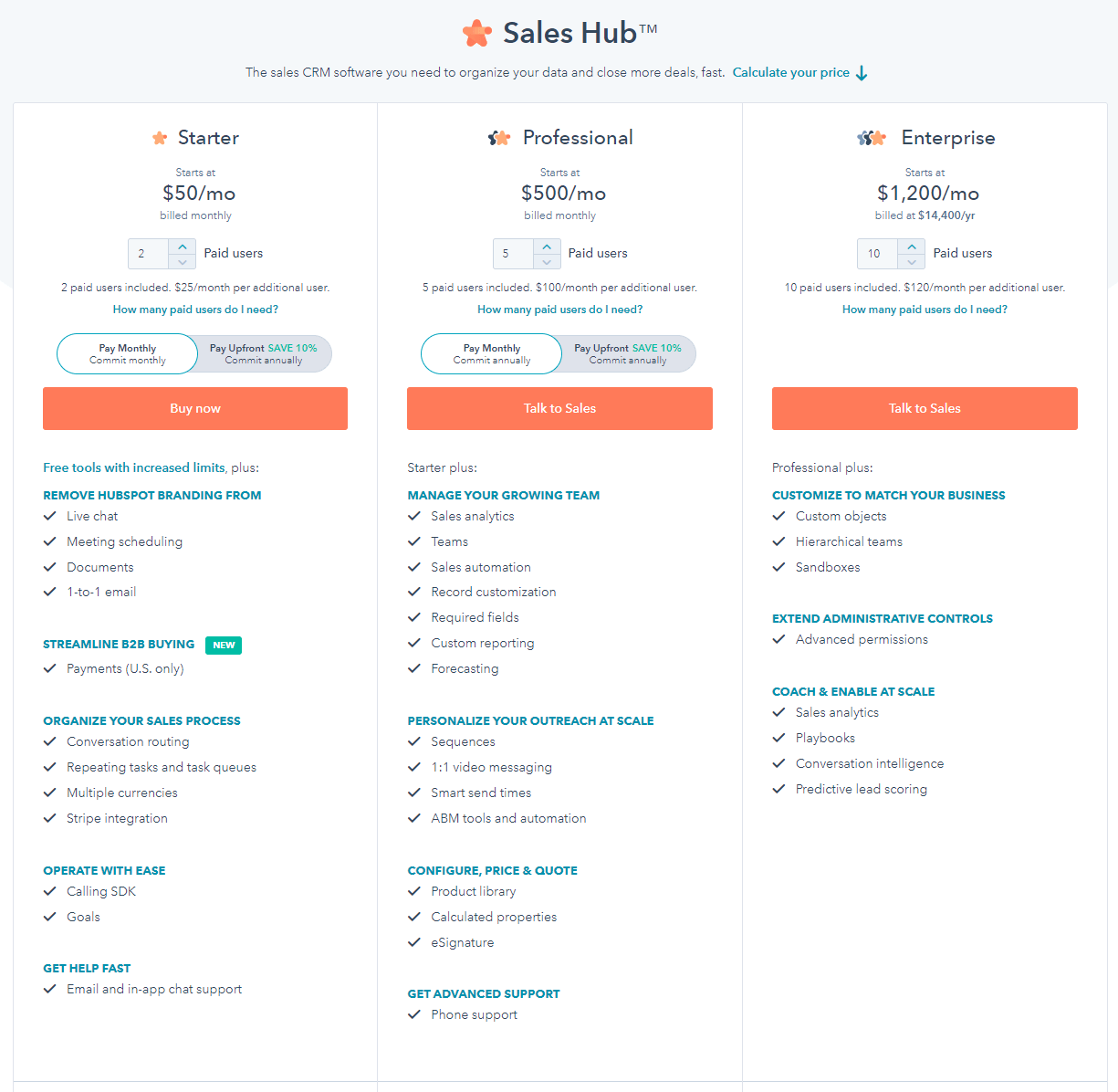
This hub helps in providing a better service to your customers. Its price varies depending on the number of paid users.
Monthly pricing plan:
Annual pricing plan:
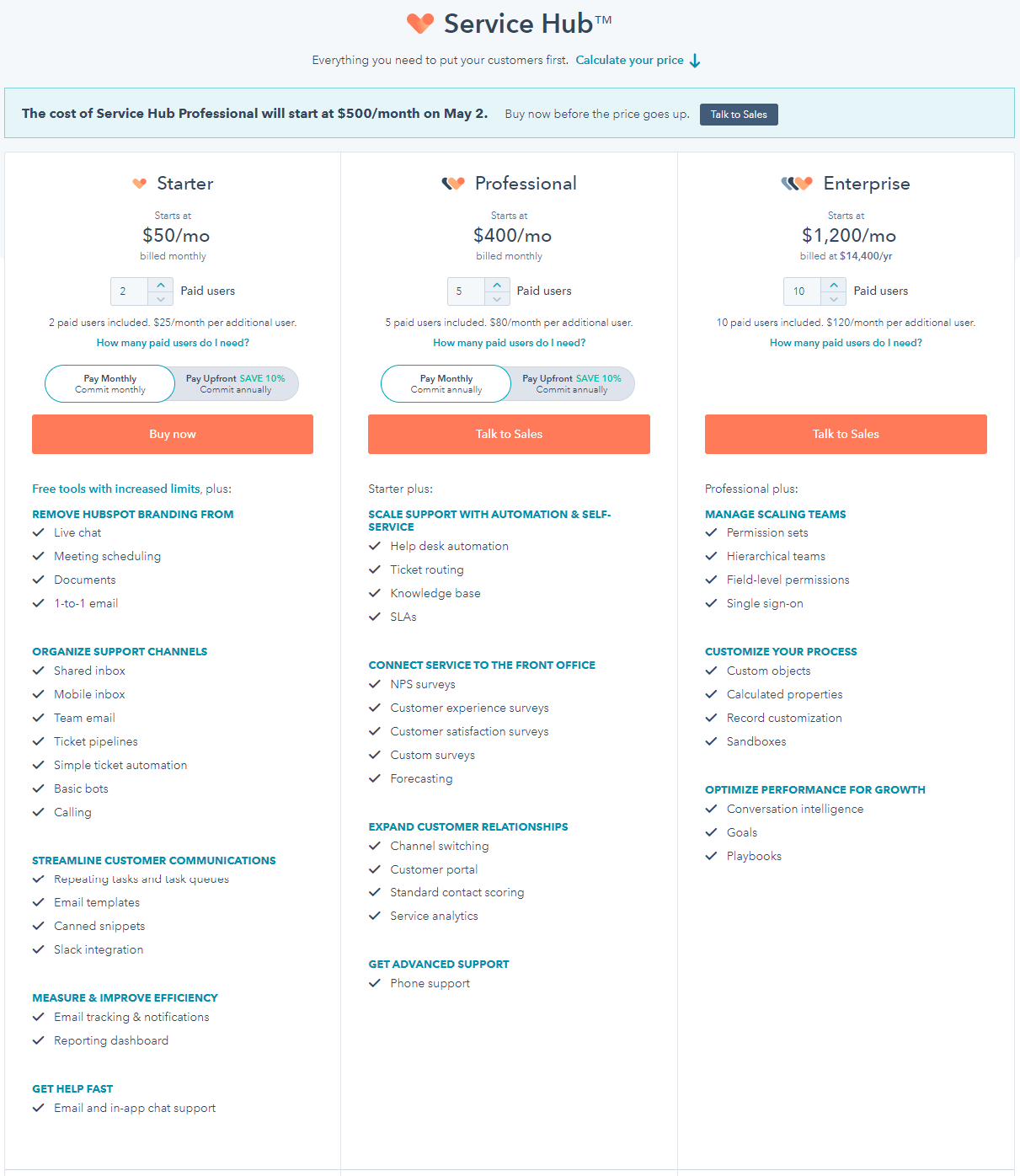
It provides all the necessary tools to build and scale a data-driven website and grow a business.
Monthly pricing plan:
Annual pricing plan:
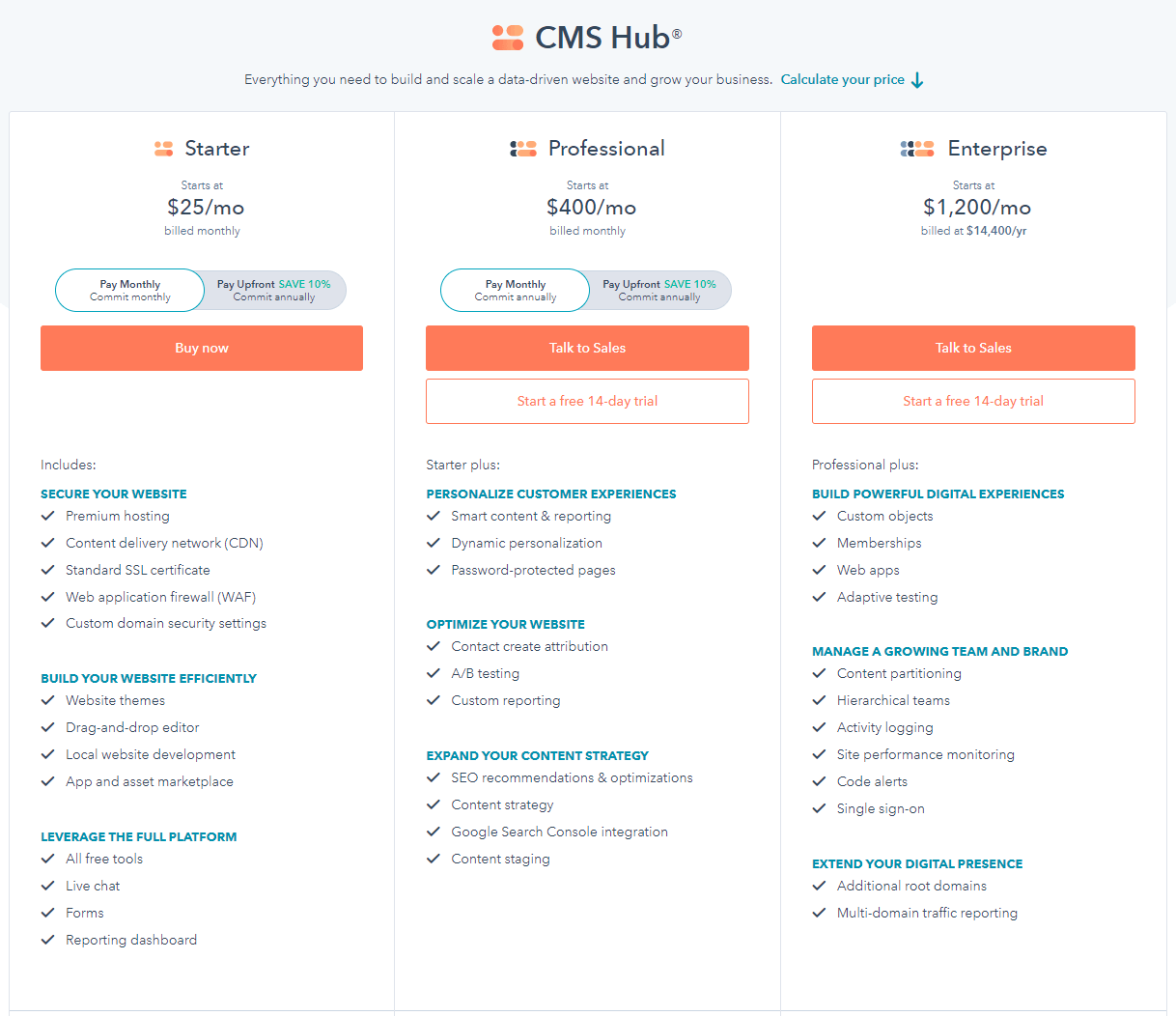
This hub provides tools to connect your apps, sync and clean customer data, and automate business processes.
Monthly pricing plan:
Annual pricing plan:
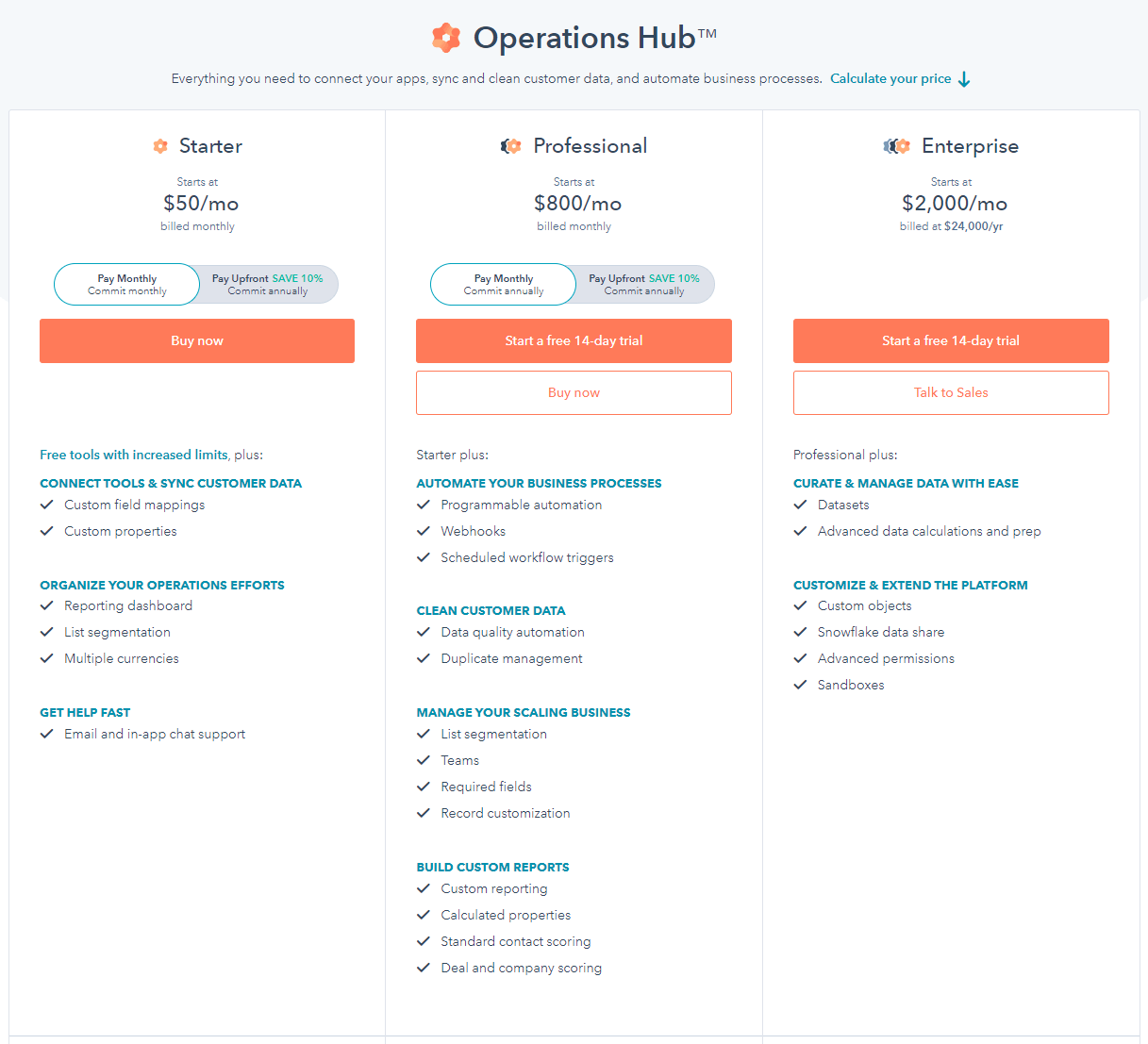
Besides these individual tools, HubSpot also lets you combine them to form Bundles.
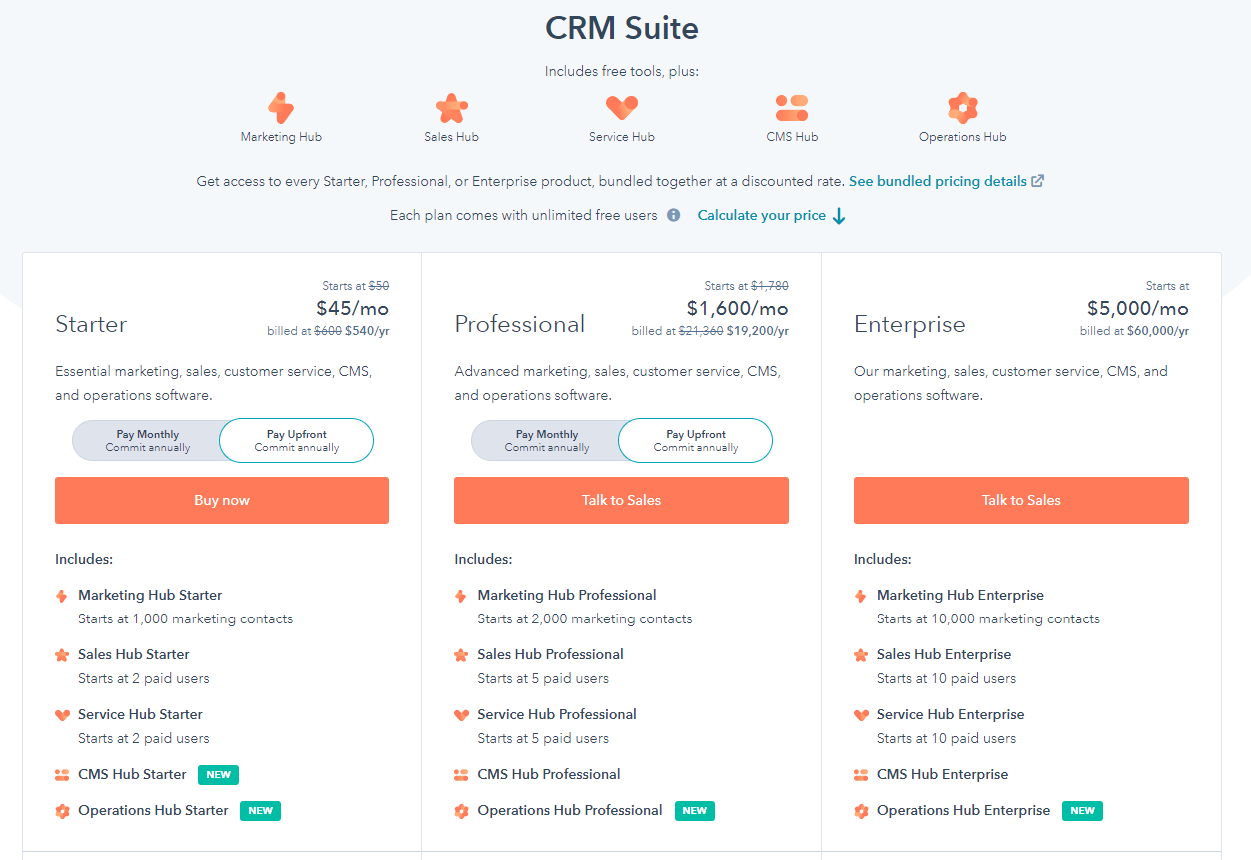
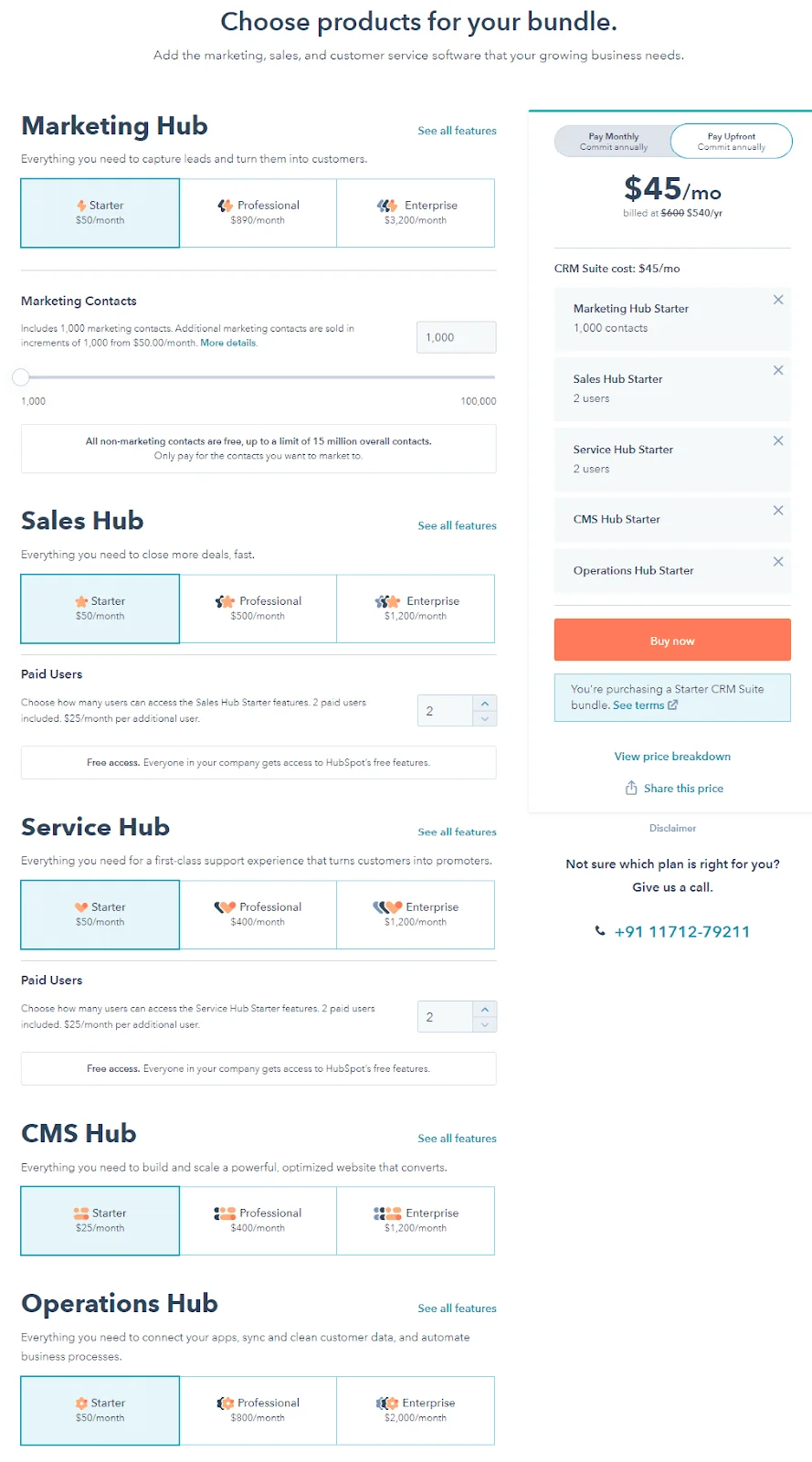
You can also customize and enhance your plan with the following add-ons.
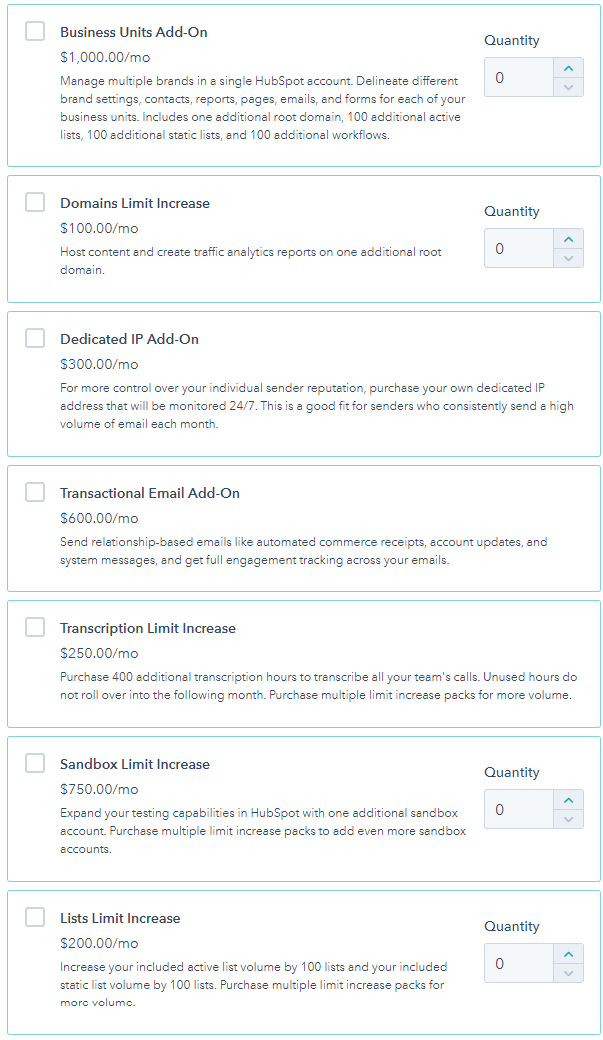
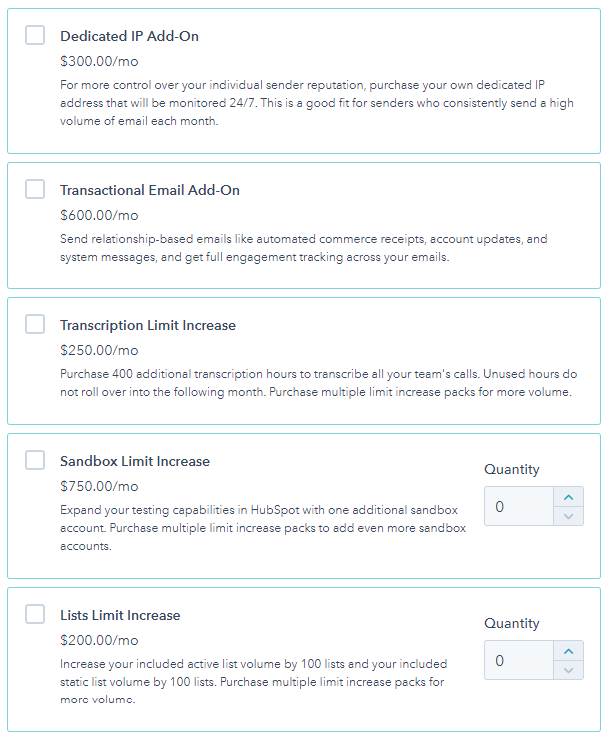
Mailchimp offers 4 variants of the pricing plan as below:
The pricing varies according to the Contacts.
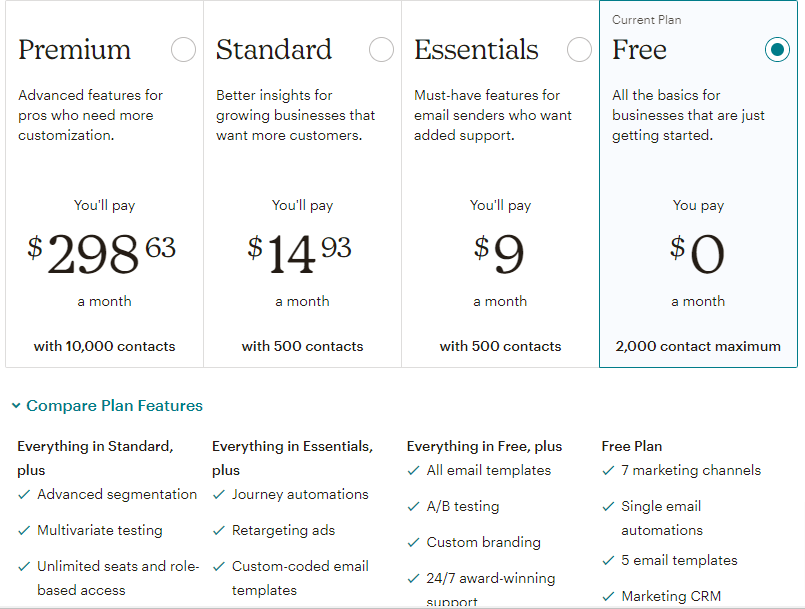
When compared on the pricing grounds, Hubspot is more expensive than Mailchimp.
8 Million+ Ready Automations
For 750+ Apps
Integrations have become an important part of any software, as they provide the much-needed flexibility to connect with other tools and extend the functionality.
The below table shows native integrations of both the tools.
HubSpot Integrations
Supports around 400 apps including the popular ones like:
WordPress,
Salesforce,
Magento,
Shopify,
Google Analytics, etc.
Mailchimp Integrations
Supports over 200 apps including the popular ones like:
Shopify,
HubSpot,
Google Analytics,
Power BI, etc
Besides the native integrations, you can also integrate both the tools with more than 800+ apps with our automation tool – Integrately!
It helps you automate tasks like:
And a lot more!
Spend only a few minutes initially and be carefree afterward. No technical skills are required!
Save yourself lots of time & money.
Just find your automation and activate it. Try out for Free: https://bit.ly/3IZFr1B
After comparing the features and pricing of HubSpot and Mailchimp, it is clear that both are good tools with their own set of advantages.
HubSpot is a comprehensive inbound marketing tool that offers everything you need to grow your business. From website management to sales and customer service, it has got you covered. However, it is on the expensive side and might not be the best choice for small businesses.
Mailchimp is a great email marketing tool that also provides some automation and eCommerce features. It is more affordable and easier to use than HubSpot. However, it lacks the comprehensive nature of HubSpot and might not be the best choice for large businesses.
The bottom line is that both are good in their ways. Opt for the one that suits your business, nature of work, and budget.